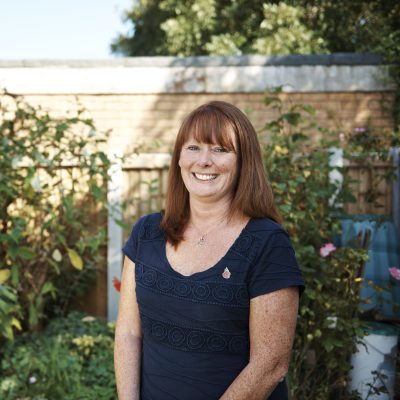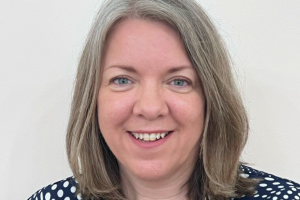For over 20 years, Paula Smith has dedicated her career to Admiral Nursing. As National Lead for the Royal British Legion service, she has grown a small pilot into a nationwide model now supporting thousands of Armed Forces families.
“My journey with Admiral Nursing began in 2001,” Paula reflects. “It was one of the few roles that truly recognised the needs of both the person with dementia and their family carers — offering clinical support that was genuinely person-centred.” By 2012, Paula was ready for a new challenge. Joining the Royal British Legion (RBL), she began the task of adapting the Admiral Nursing model to meet the unique needs of veterans and their families. “We started with a single team in Lancashire,” she recalls. “From there, we listened closely to carers’ voices, built strong local relationships, and concentrated on delivering measurable, high-quality outcomes that we could refine and improve over time.”
The service has since grown significantly, with 39 Admiral Nurses now working nationwide. Building a service with families at its heart meant embedding clear governance, robust referral pathways, and consistent training, ensuring that wherever families live, they receive the same high standard of care. “Our focus is always on the individual,” Paula explains. “Every family’s situation is different, and our role is to provide the right support at the right time, whether that’s face-to-face, over the phone, or via video consultation.” What makes the RBL Admiral Nurse Service distinctive is its deep understanding of the Armed Forces community. Military service shapes identity, resilience, and family dynamics in ways that profoundly influence the experience of dementia. “Our nurses are skilled at tailoring their approach to acknowledge service history, pride, and sometimes trauma,” Paula says. “It’s about care that respects where people have come from.”
Innovation in the face of challenge has been another hallmark of Paula’s leadership. When the Covid-19 pandemic hit, she and her team adapted overnight. “We moved quickly to remote working, virtual assessments, and digital support,” she explains. “These changes have now become a permanent part of our blended model — giving families flexible, responsive support.” This adaptability has enabled the service to meet people’s needs more effectively than ever. Whether through digital platforms or home visits, Admiral Nurses have ensured that carers remain supported, connected, and never feel alone.
Paula is also proud of initiatives designed to build belonging and peer support, such as Kitbags Live On, a group programme that brings veterans and carers together through shared activities. “It helps people reflect, connect, and share experiences,” she says. “The camaraderie and peer support these groups foster is powerful. Families leave feeling understood, less isolated, and part of a community.” The service has also extended into RBL care homes, where Admiral Nurse-led clinics and peer groups ensure specialist dementia support continues in residential settings.
Her commitment to clinical excellence has grown alongside the service itself. Under Paula’s leadership, the programme now offers a strong induction, ongoing supervision, Dementia UK training, and regular opportunities for reflective practice. “It’s vital that our nurses feel supported,” she says. “A strong professional network ensures best practice is shared and standards remain consistently high.”
Ultimately, Paula believes the most important measure of success comes from the families themselves. “Many tell us that Admiral Nursing has enabled them to keep caring for their loved ones and to do so with confidence,” she reflects. “Walking alongside families through their most difficult moments is a privilege, and ensuring they never feel alone is at the heart of what we do.”
From a single team in Lancashire to a nationwide network of 39 nurses, Paula’s leadership has been pivotal in building one of the UK’s most respected dementia support services for veterans and their families. “Our success has always been built on partnership — with families, with the RBL, and with the Armed Forces community as a whole,” Paula says. “Together, we are making sure that carers have the support, information, and understanding they need every step of the way.”







